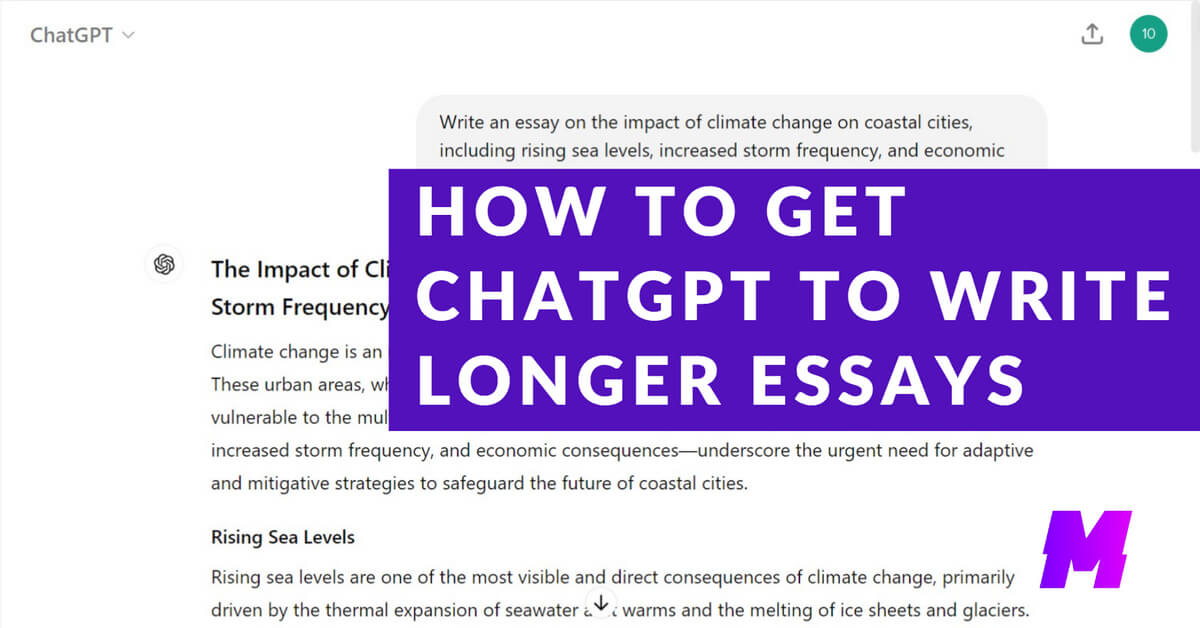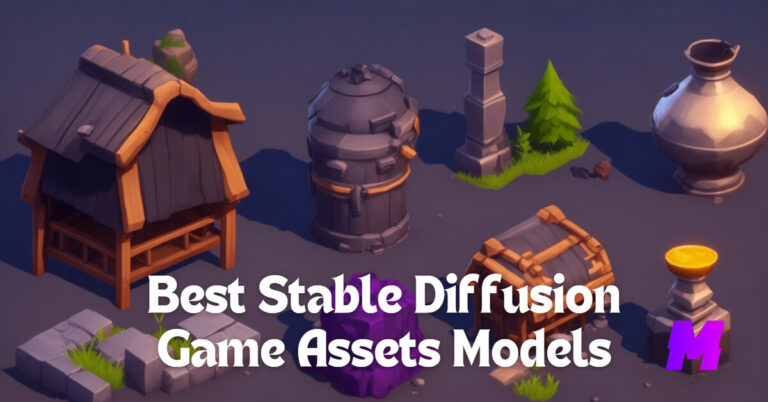With the right prompting, ChatGPT is one of the best AI essay writers.
While ChatGPT may limit content length in one response, there are some advanced tricks to help you effectively guide ChatGPT to write longer, more detailed essays that meet your specific requirements.
Here are also example prompts provided for a quick try.
I’ll demonstrate this by writing a rather lengthy essay about “the impact of climate change on coastal cities”. You can see my full chat on ChatGPT.
👍ALSO READ: The 11 Best ChatGPT Alternatives without Restrictions
Table of Contents
- Example Prompt to Begin
- Set Clear and Detailed Prompts
- Break Down the Topic into Subtopics
- Use Continuation Prompts
- Iterative Refinement
- Use Follow-Up Prompts
- Request Examples and Citations
- Encourage Complexity
- Utilize ChatGPT Playground
- FAQs
Example Prompt to Begin
ChatGPT, I would like you to write a 2000-word argumentative essay on the impact of artificial intelligence on the job market. The essay should have an introduction with a thesis statement, followed by four body paragraphs discussing both positive and negative impacts, and conclude with a summary of arguments and a strong closing statement. Please use a formal academic tone, and include examples and data to support the points. I would like to review a draft before the final essay is completed.
Set Clear and Detailed Prompts
Be Specific
Clearly state the topic and the specific aspects you want to cover. For example, instead of asking “Write an essay on climate change,” you could ask:
“Write an essay on the impact of climate change on coastal cities, including rising sea levels, increased storm frequency, and economic consequences.”
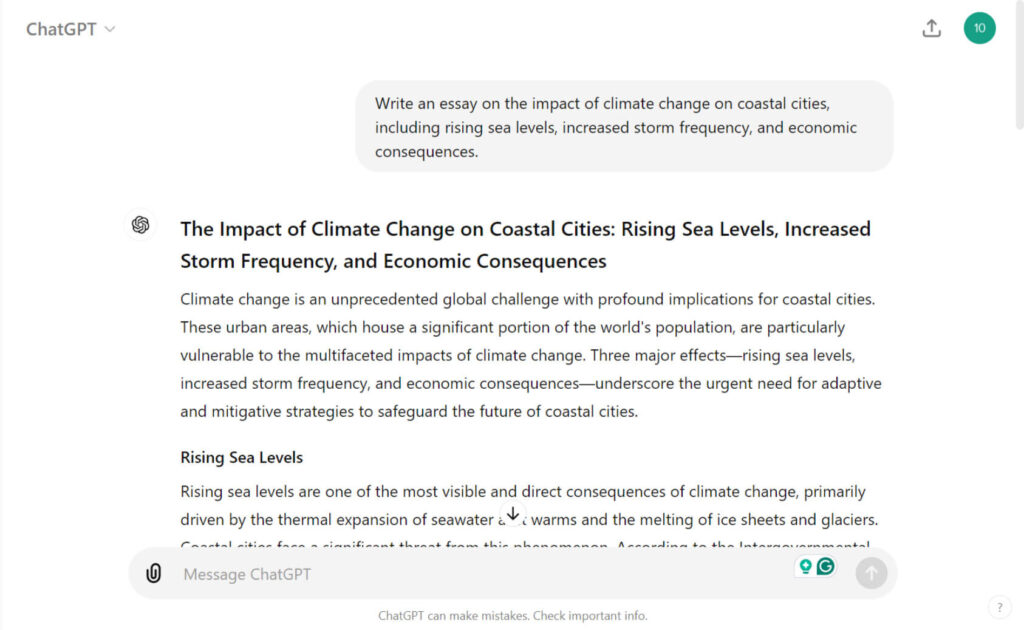
Include Length Requirements
Specify the desired word count or number of pages. For example, “Write a 3000-word essay on the impact of climate change on coastal cities” or “Write this essay in 10 pages”.
Break Down the Topic into Subtopics
Divide the Main Topic
Break down the main topic into smaller, manageable subtopics. This helps ChatGPT to focus on each section in detail. For example, for an essay on climate change, you could divide it into sections like “Introduction,” “Causes of Climate Change,” “Effects on Coastal Cities,” “Economic Impact,” and “Mitigation Strategies”.
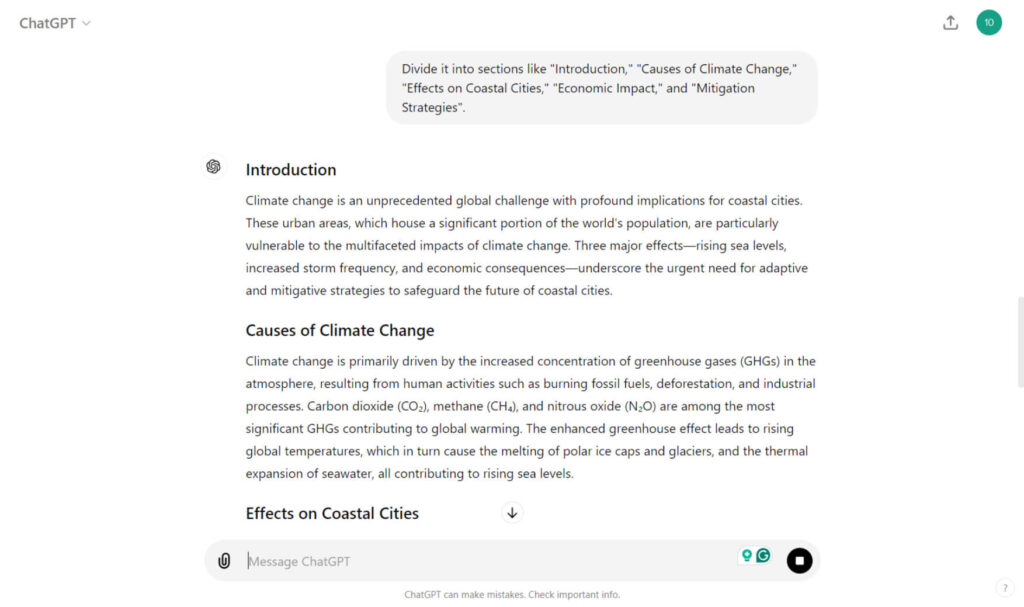
Sequential Prompts
Use sequential prompts to cover each subtopic. For example, “Write the introduction for an essay on the impact of climate change on coastal cities,” followed by “Now write a section on the causes of climate change“.
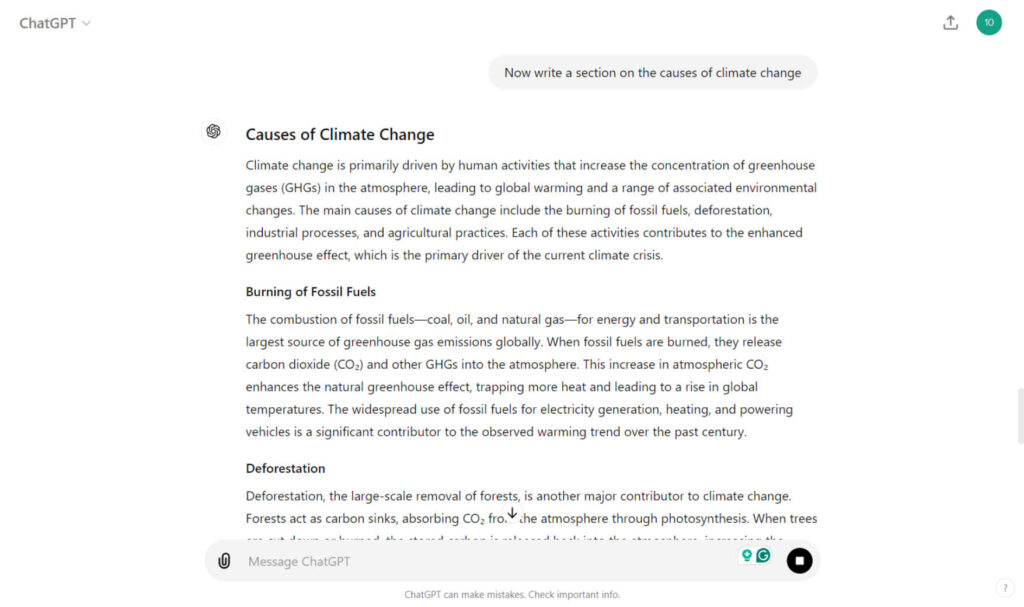
Use Continuation Prompts
Page Numbers
After generating the initial content, prompt ChatGPT to continue by using page numbers. For example, after the first response, you can prompt “Continue on page 2“, “Continue on page 3,” and so on.
Continuation Commands
Use commands like “continue,” “expand,” or “generate more data” to prompt ChatGPT to add more content. For example, “Please continue from where you left off” or “Expand on the economic impact of climate change on coastal cities“.
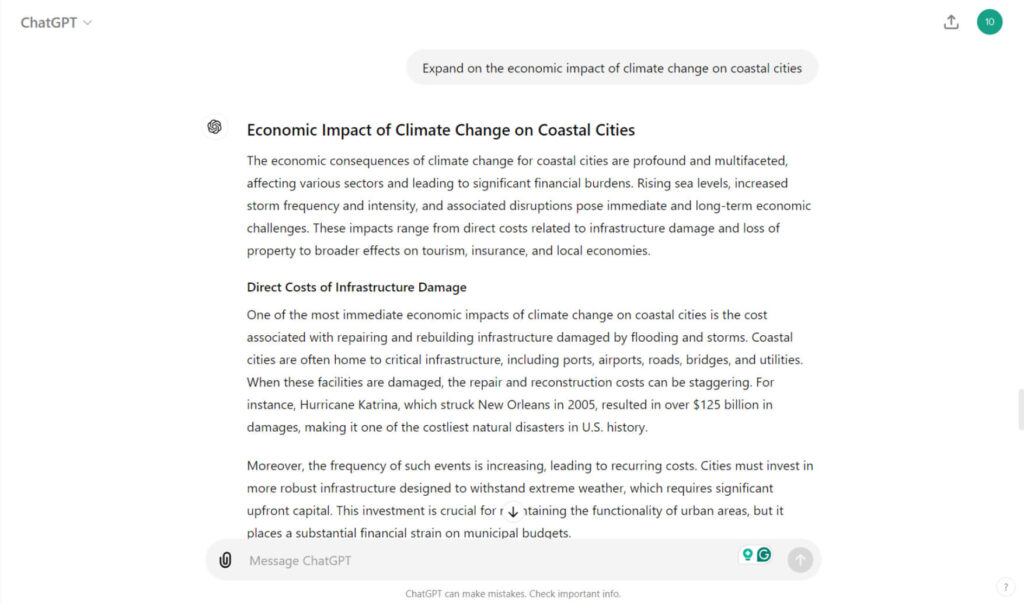
Iterative Refinement
Review and Feedback
Review the generated content and provide feedback for improvements. For example, if a section is too brief, you can prompt “Provide more details on the economic consequences of rising sea levels“.
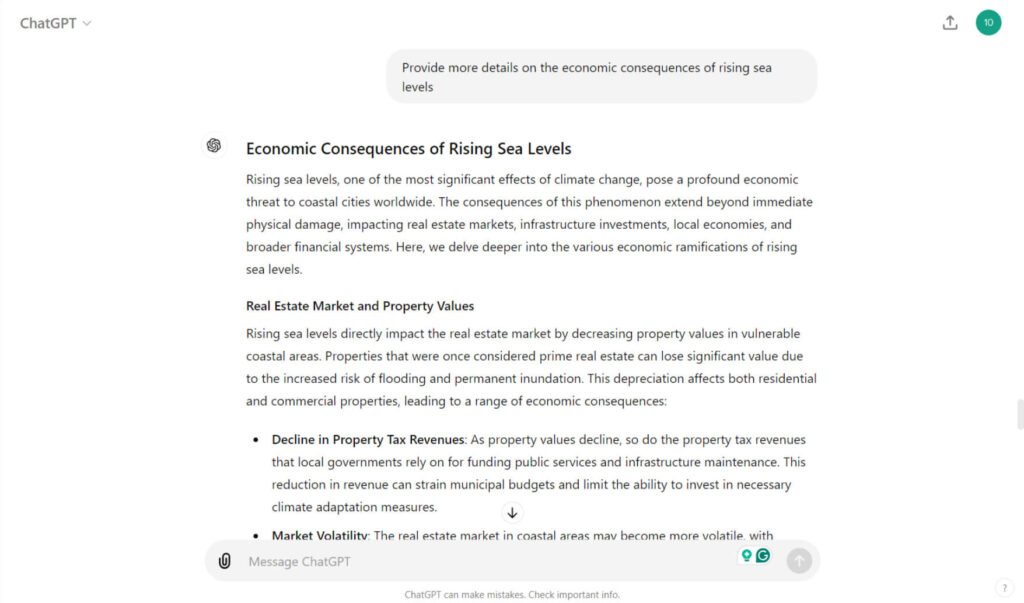
Ask for Revisions
If certain parts need enhancement, ask ChatGPT to revise specific sections. For example, “Rewrite the introduction to include a stronger hook and more background information“.
Use Follow-Up Prompts
Engage with the content provided by asking follow-up questions or requesting elaboration on certain points. This can help to expand sections of the essay or add additional detail.
After receiving the draft:
Follow-Up Prompt 1
Elaborate on Specific Adaptation Strategies
Given the detailed economic consequences of rising sea levels on coastal cities, can you elaborate on specific adaptation strategies that have been successfully implemented in various cities around the world? How have these strategies helped mitigate the economic impacts, and what lessons can other cities learn from these examples?
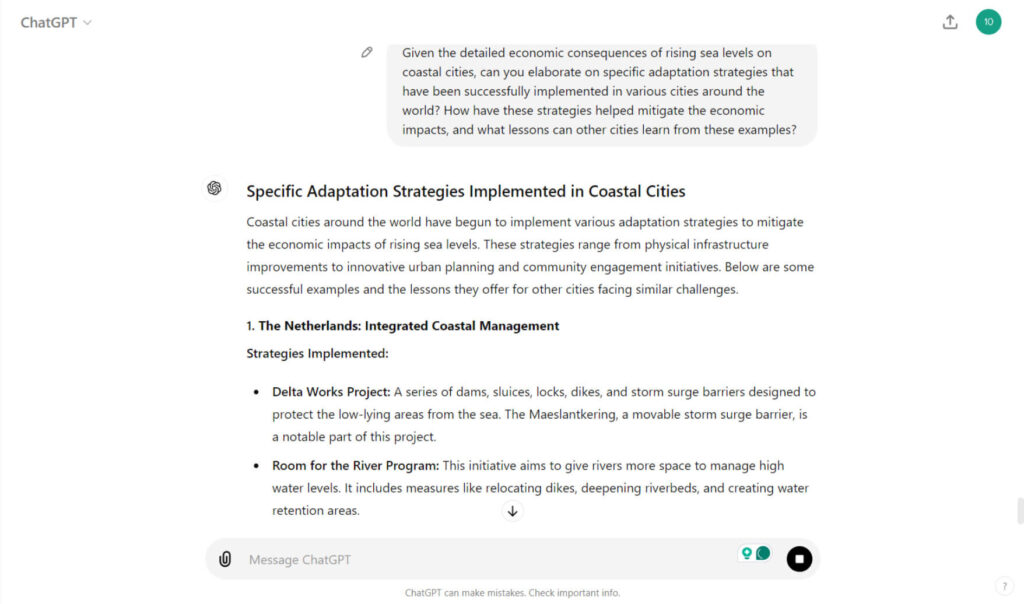
Follow-Up Prompt 2
Impact on Social Equity and Vulnerable Populations
How do the economic consequences of climate change, particularly rising sea levels, affect social equity and vulnerable populations in coastal cities? Discuss the disproportionate impacts on low-income communities and what measures can be taken to ensure that adaptation strategies are inclusive and equitable.
Follow-Up Prompt 3
Role of International Cooperation and Funding
Considering the significant financial burden that rising sea levels impose on coastal cities, what role does international cooperation and funding play in supporting adaptation and mitigation efforts? Discuss the effectiveness of current international frameworks and financial mechanisms, and suggest improvements or new initiatives that could enhance global support for vulnerable coastal cities.
Request Examples and Citations
Ask for examples, anecdotes, or citations to be included, which can add length and depth to the essay:
For each section, include at least three specific examples or anecdotes and provide a minimum of five academic citations to support the arguments made. Ensure that the language is formal and suitable for an academic audience.
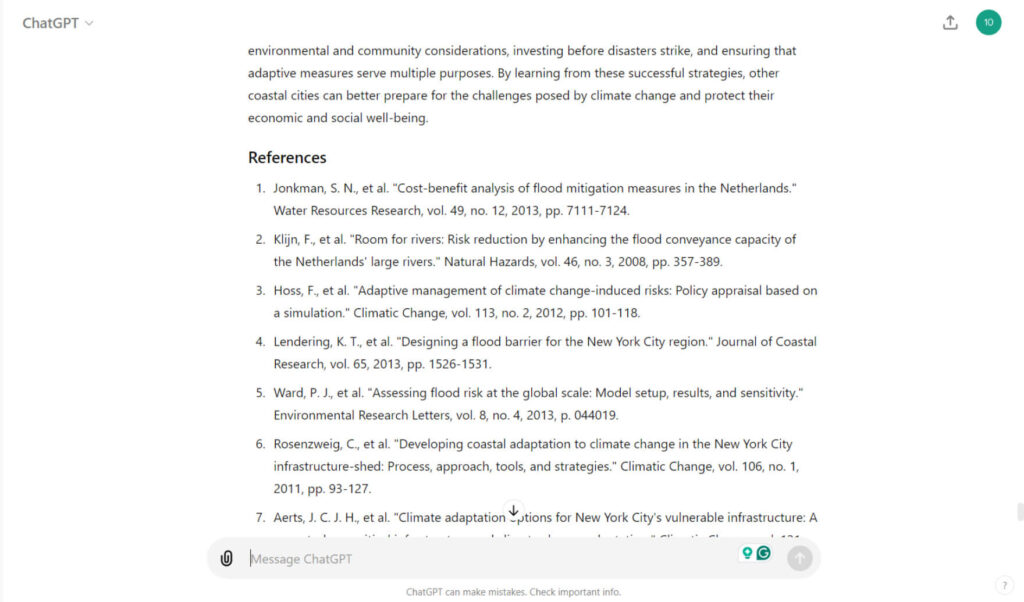
Encourage Complexity
Prompt ChatGPT to use complex sentence structures, technical vocabulary, and nuanced arguments, which can contribute to a longer and more sophisticated essay:
Please ensure that each section contains multiple clauses and a variety of sentence structures to convey the information in a sophisticated manner. Include technical terms where appropriate and provide explanations that reflect a deep understanding of the subject.
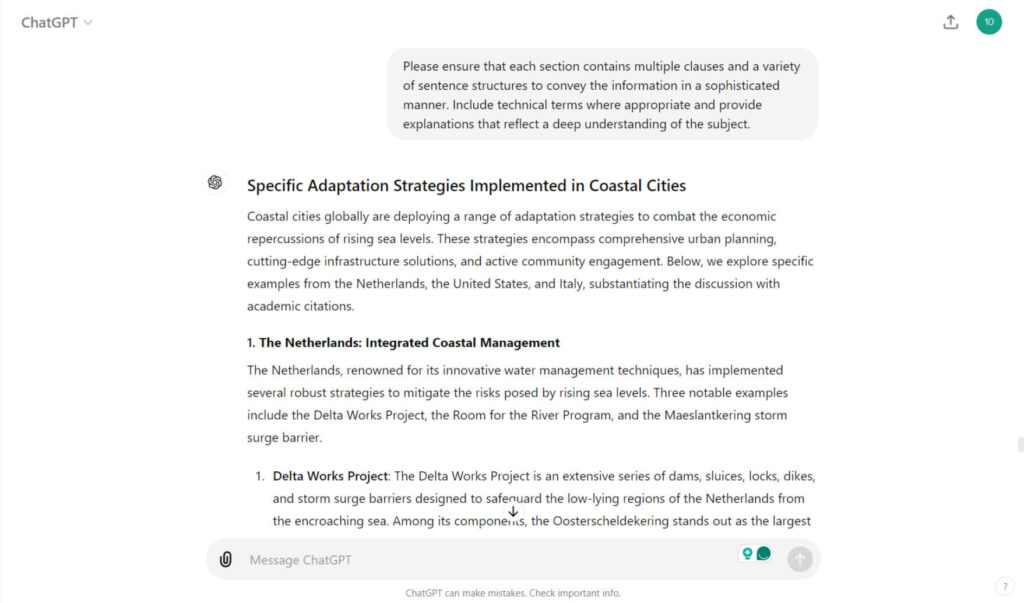
Utilize ChatGPT Playground
Advanced Settings
Use the ChatGPT Playground to adjust settings like temperature and max tokens to control the length and creativity of the responses. Higher max tokens can help generate longer responses in one go.

Save and Analyze
Save the transcripts of your interactions to review and refine your prompts. This helps in identifying patterns and improving the quality of the generated content over time.
FAQs
Can ChatGPT write long essays?
Yes, ChatGPT can write long essays by using prompts to request more details or by breaking the essay into sections and having ChatGPT expand on each part.
How do I get ChatGPT to continue writing if it stops mid-way?
Use continuation prompts such as “continue,” “expand,” or “generate more data.” You can also specify page numbers, like “Continue on page 2” .
What settings in the ChatGPT Playground can help generate longer responses?
Adjust settings like temperature and max tokens to control the length and creativity of the responses. Higher max tokens can help generate longer responses in one go.
How can I ensure the content generated by ChatGPT is coherent and high-quality?
Review and edit the generated content to maintain quality and coherence. Use ChatGPT as a tool to assist in writing, but always refine the final draft.
Can I ask ChatGPT to summarize a long essay?
Yes, you can ask ChatGPT to summarize a long essay by providing the text and prompting it to “summarize the following”. This can be useful if you went over the desired word count.
Will ChatGPT essays be completely original?
No, since ChatGPT generates text based on patterns from its training data, the essays it produces may not be completely original or unique if someone else asks about the same topic.
Can I get in trouble for submitting a ChatGPT-written essay?
Some instructors consider submitting an entirely ChatGPT-written essay as plagiarism, so you should check your institution’s policies. It’s generally recommended to use ChatGPT as an aid but do your own writing and fact-checking.

